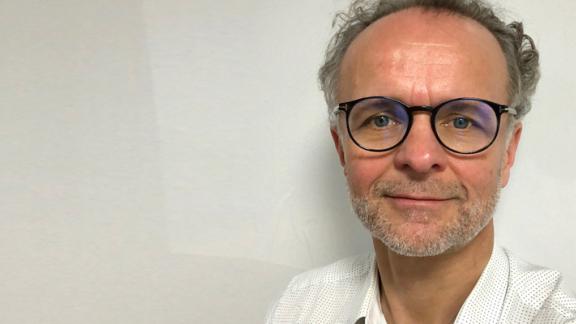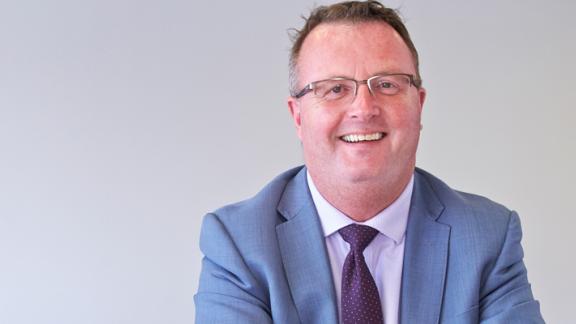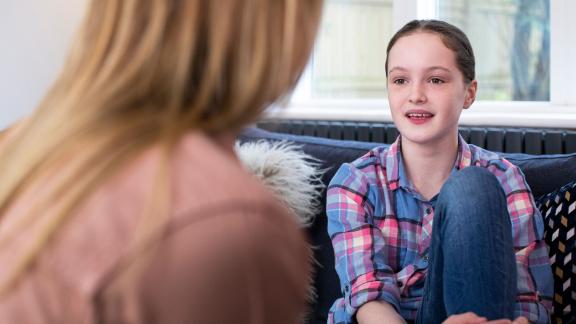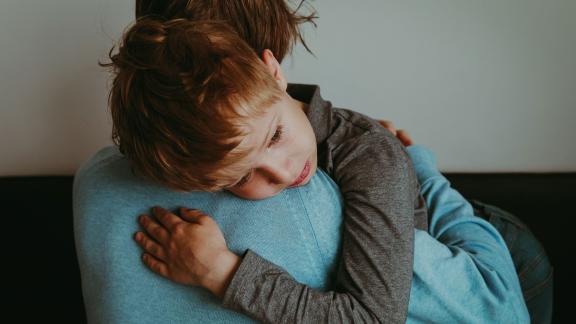Setting up the Child Health and Wellbeing Network

Since writing on the birth of the Child Health and Wellbeing Network in the North East and North Cumbria, Dr Mike McKean, clinical director at Great North Children’s Hospital, now shares the journey of system leadership and professional and user engagement.
Setting up a new network felt daunting and almost too difficult to attempt. Add to this the temporary nature of the funding we received, perhaps most sensible people would have steered clear of this challenge! But I was fortunate to have the support of my trust executives, my close colleagues and most importantly, I met Heather Corlett.
Heather was assigned to our new network on a part-time basis as our very first network manager and I think we both somehow found very quickly that we had a shared ambition to make a positive difference to the many young people that we know are so disadvantaged across our region. I found out very quickly that having a manager who understands commissioners and how they work, who has links to other networks and above all a fearless persistence when things appear just a little too difficult, is so very important.
Shaping the network
Within a few months we had formed a group of what we have called ‘system leaders’. We did not call it a formal board as we had no terms of reference, no set of goals handed to us and no permanent money against which we would be judged. I believe this was and still is to our advantage. It has meant we have been able to set our own priorities, leading to our enlisting the knowledge, skills and enthusiasm of a special group of people with expertise across all sectors, health (both primary and secondary care, physical, mental health and public health, and commissioning), social services (we are so privileged to have two local authority leaders of children’s services) and the voluntary sector.
We successfully bid for a highly competitive NHS System Leadership Programme that challenged our group to think deeply about the nature of networks and how we might best go about setting one up. I recall long discussions on the nature of effective teams, leadership and communications, and teleconferences with some amazing people around the UK who have trod this path, albeit in different environments and different ways. We spent long nights with pens and paper developing ideas that we could share.
Our thinking turned out to be good, but in hindsight perhaps I should have worried less about these? In fact when we started building our network, I discovered that the professionals, children and young people we work with knew exactly what the value of a network was and what they wanted a network to be. Perhaps the most useful part of this process was in binding a small group of highly committed and diverse people behind a single aim. A bond was formed and still holds strong over a year later.
Engaging with stakeholders
They say it is always best to start at the beginning. For us, we desperately wanted to ensure we had good engagement with children and young people. We also knew we had no formal groups to call on and we were worried about how to engagement meaningful, not simply a token child or two but real partnership work. We organised three one-day conferences to learn about the challenges we face in our region, the imperative for many changes to health and social care set out in the NHS Long Term Plan, and some fine examples for work along these lines already happening in our region. And we were amazed.
The events were well attended with between 100-150 people at each day. We heard from our public health colleagues the most distressing data on how the North East and North Cumbria is the worst place in the UK to grow up with the highest rates of teenage pregnancies, highest suicide rates in young people, highest levels of admissions to hospital for self-harm and asthma, and the highest levels of obesity. Our fantastic academic colleagues educated us on the data that underpinned this and we heard some heart-wrenching stories of what it’s really like to live as a young person in our region. We also heard uplifting stories of how services have grown to meet some of the needs and how we have some amazing voluntary organisations working so hard to make a difference. But, as much as this sounds fantastic, something else was happening.
We had invited children from schools and from groups that we were aware of to share some of their work and thinking. We realised that their voices and thoughts were so much more powerful than any of the health or care professionals we were connected to. They helped us devise a large survey for children and young people and professionals to articulate what they wanted out of a network. They helped us organise a series of workshops to explore what health and wellbeing really meant to wide a range of children and young people across the breadth of our region. In short, they taught us how to listen, how to show respect and allow time and space for people to express themselves and how this is the real start of our journey.
This culminated in our last event being organised and chaired by our young people - showcasing their challenges and feelings, putting their voice right at the centre of everything we do. So ‘no longer shall we do to children and young people, but with them’. They brought not just their health challenges but a wider understanding of why their schools are so important to them, their environment, their access to arts and creativity, as well as to good healthcare.
Meaningful results
This process led us to developing our Wheel of Priorities, a framework against which we intend to work over the next nine years - we are after all one year in to our own ten year plan. And we have now in our impact report summarised our vision, aims and some interesting areas of work that we are privileged to be part of.
For me, I have learned an enormous amount in the space of a year. Some key things I would wish to share are:
- Start at the beginning – and that is the people we care for, work with or support in whatever area.
- Think hard about engagement, don’t make it a token. Learn about co-production and why true partnerships are empowering.
- When thinking about healthcare for children and young people, do not just think about the GP surgery, health centre or hospital. Think about their homes, their clubs and most importantly, their schools.
- And, remember that children and young people are the most precious citizens we have, they are our future and deserve the respect and support that will see them truly flourish.
Dr Mike McKean is clinical lead of Child Health and Wellbeing Network and clinical director of Great North Children’s Hospital. Follow the network on Twitter @NorthNetChild



